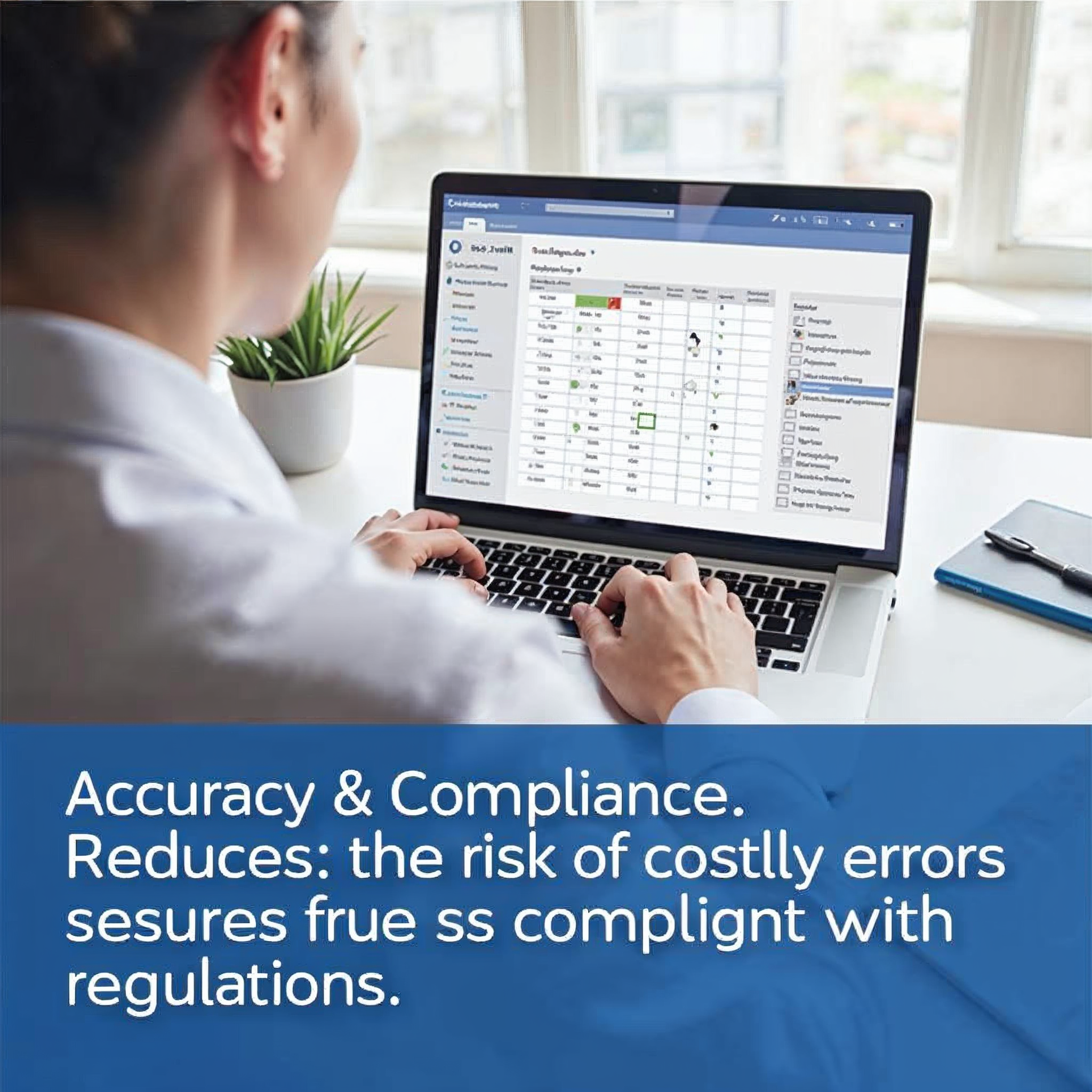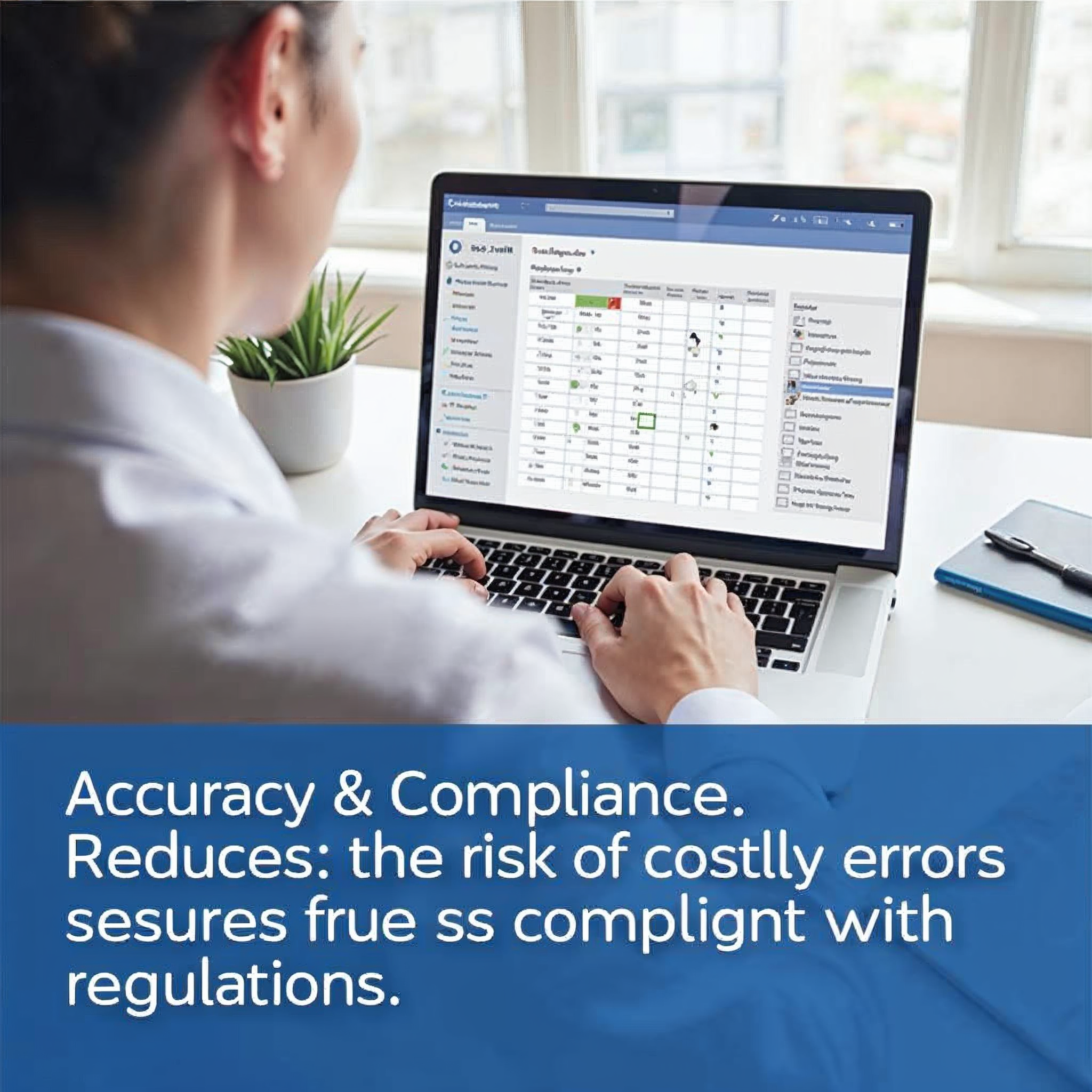How Accuracy in Bookkeeping Safeguards Your Business from Financial Risks
You’re running the numbers late into the night, hoping everything checks out. But deep down, you know one mistake in bookkeeping could lead to financial chaos. Imagine avoiding costly errors and staying compliant with ease. This isn’t just a dream; it’s the power of accuracy in bookkeeping. You’ll uncover how precise financial processes protect your business from legal troubles and financial pitfalls. Ready to discover the best practices that ensure peace of mind and improve operational efficiency? Let’s dive in. Learn more about the importance of accurate bookkeeping for tax compliance.
Importance of Accurate Bookkeeping
Accurate
bookkeeping forms the backbone of a financially healthy business. It’s not just about balancing numbers; it’s about creating a clear financial picture that guides decision-making and ensures compliance with various regulations.
Ensuring Financial Compliance
Financial compliance is a critical aspect of running a business. It involves adhering to laws, regulations, and standards set by government bodies and industry organizations.
Accurate bookkeeping plays a vital role in maintaining financial compliance. By keeping detailed and up-to-date records, businesses can easily track their financial activities and ensure they meet all necessary requirements.
Regular audits become less stressful when your books are in order. With accurate records, you can quickly provide the information needed to satisfy auditors and regulatory bodies.
Compliance also extends to financial reporting. Accurate bookkeeping ensures that your financial statements reflect the true state of your business, which is essential for stakeholders, investors, and lenders.
Avoiding Costly Errors
Mistakes in bookkeeping can have serious financial consequences for a business. These errors can range from minor discrepancies to major oversights that impact the company’s bottom line.
One common costly error is misclassification of expenses. This can lead to incorrect tax filings and potential penalties from tax authorities. Accurate bookkeeping helps prevent such mistakes by ensuring each transaction is recorded correctly.
Another area where errors can be costly is in inventory management. Inaccurate records can result in overstocking or stockouts, both of which can hurt your business financially.
Accurate bookkeeping also helps in detecting fraud or theft early. By maintaining precise records and reconciling accounts regularly, you can spot unusual transactions or discrepancies quickly, potentially saving your business from significant losses.
Best Practices in Bookkeeping
Implementing best practices in bookkeeping is essential for maintaining accuracy and efficiency in your financial processes. These practices help create a solid foundation for your business’s financial management.
Implementing Financial Management Policies
Financial management policies are guidelines that dictate how a company handles its financial activities. These policies ensure consistency and accuracy in financial operations.
One key policy is the separation of duties. This involves assigning different parts of a financial transaction to different people, reducing the risk of fraud or errors. For example, the person who approves purchases should not be the same person who reconciles bank statements.
Another important policy is regular reconciliation. This involves comparing your internal financial records with external statements, such as bank statements or vendor invoices. Regular reconciliation helps catch discrepancies early.
Implementing a clear chart of accounts is also crucial. This standardized list of account categories helps organize financial transactions and makes reporting easier and more accurate.
Lastly, establishing a policy for timely recording of transactions helps maintain up-to-date and accurate financial records. This practice ensures that no transactions are forgotten or misrecorded.
Enhancing Operational Efficiency
Accurate bookkeeping can significantly improve a business’s operational efficiency. By maintaining clear and organized financial records, you can streamline various business processes.
One way bookkeeping enhances efficiency is through better cash flow management. Accurate records allow you to forecast cash flow more precisely, helping you make informed decisions about spending and investments.
Accurate bookkeeping also aids in budgeting and financial planning. With reliable financial data, you can create more accurate budgets and set realistic financial goals for your business.
Efficiency is also improved through better inventory management. Accurate records of purchases and sales help you maintain optimal inventory levels, reducing costs associated with overstocking or stockouts.
Lastly, accurate bookkeeping supports faster decision-making. When you have reliable financial data at your fingertips, you can quickly assess the financial impact of business decisions.
Safeguarding Against Financial Risks
Accurate bookkeeping serves as a powerful tool in protecting your business from various financial risks. By maintaining precise records, you can identify potential issues early and take proactive measures to mitigate them.
Mitigating Financial Risks with Accuracy
Accurate bookkeeping plays a crucial role in identifying and mitigating financial risks. It provides a clear picture of your business’s financial health, allowing you to spot potential problems before they escalate.
One way accuracy helps is by enabling better debt management. With precise records of your accounts payable and receivable, you can avoid late payments and manage your cash flow more effectively.
Accurate bookkeeping also aids in detecting unusual patterns or transactions that could indicate fraud. By regularly reviewing your financial records, you can quickly spot any discrepancies or suspicious activities.
Another benefit is improved financial forecasting. Accurate historical data allows for more precise predictions of future financial trends, helping you prepare for potential financial challenges.
Lastly, accurate bookkeeping supports better risk assessment when making business decisions. With reliable financial data, you can evaluate the potential risks and rewards of different opportunities more effectively.
Achieving Tax Law Compliance
Tax law compliance is a critical aspect of financial management for any business. Accurate bookkeeping is essential in ensuring that your business meets all its tax obligations correctly and on time.
One key benefit of accurate bookkeeping is the ability to claim all eligible deductions. By maintaining detailed records of all business expenses, you can ensure you’re not missing out on any tax-saving opportunities.
Accurate records also make tax filing easier and less stressful. When your books are in order, you can quickly gather all the information needed to complete your tax returns accurately.
In case of an audit, accurate bookkeeping provides a strong defense. With detailed and organized financial records, you can easily justify your tax returns and respond to any queries from tax authorities.
Lastly, accurate bookkeeping helps in planning for tax payments. By having a clear picture of your tax liabilities throughout the year, you can set aside the necessary funds and avoid cash flow issues when tax payments are due.



